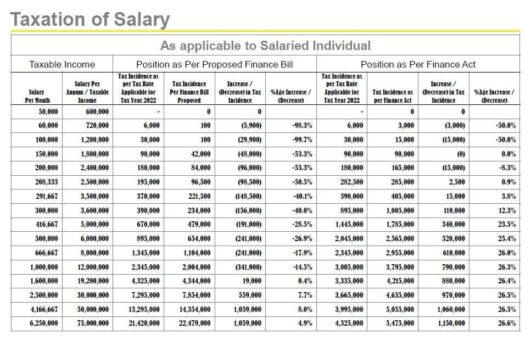KARACHI: The Federal Board of Revenue (FBR) has issued amended income tax law to notify the tax rates on users of mobile phones and internet during 2022-2023.
FBR issued Income Tax Ordinance, 2001 updated up to June 30, 2022 incorporating changes made through the Finance Act, 2022.
READ MORE: FBR launches campaign to ensure return filing by due date
The revenue body collects these taxes under Section 236 of the Income Tax Ordinance, 2001.
Under this section, in the case of telephone subscriber (other than mobile phone subscriber) where the amount of monthly bill exceeds Rs1,000, then the tax rate shall be 10 per cent of the exceeding amount of bill.
Similarly, in the case of subscriber of internet, mobile telephone and pre-paid internet or telephone card, the tax rate shall be 15 per cent of the amount of bill or sales price of internet pre-paid card or pre-paid telephone card or sale of units through any electronic medium or whatever form.
READ MORE: FBR promotes 56 Inland Revenue Officers to BS-17
According to the Section 236: Telephone and internet users.- (1) Advance tax at the rates specified in Division V Part IV of the First Schedule shall be collected on the amount of –
(a) telephone bill of a subscriber;
(b) prepaid cards for telephones;
(c) sale of units through any electronic medium or whatever form; and
(d) internet bill of a subscriber; and
(e) prepaid cards for internet.
(2) The person preparing the telephone or internet bill shall charge advance tax under sub-section (1) in the manner telephone or internet charges are charged.
READ MORE: FBR transfers six IRS officers of BS-19-20
(3) The person issuing or selling prepaid cards for telephones or internet shall collect advance tax under sub-section (1) from the purchasers at the time of issuance or sale of cards.
(3A) The person issuing or selling units through any electronic medium or whatever form shall collect advance tax under sub-section (1) from the purchaser at the time of issuance of sale of units.
(4) Advance tax under this section shall not be collected from Government, a foreign diplomat, a diplomatic mission in Pakistan, or a person who produces a certificate from the Commissioner that his income during the tax year is exempt from tax.






